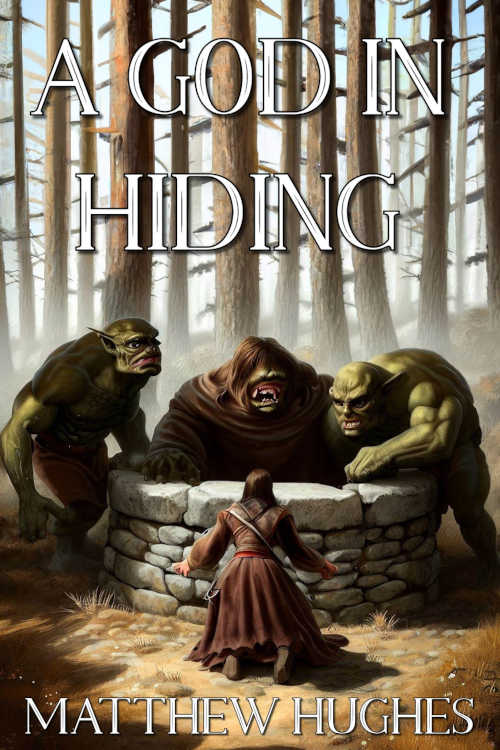Confabulation: the fiction author’s helpful friend

Don’t worry about long and tedious descriptions, this award-winning fiction author says. Your readers’ minds will happily fill in the gaps.
by Matthew Hughes
 “A ship out on the ocean.”
“A ship out on the ocean.”
When I was teaching genre writing, I would say this line to the class, wait a couple of seconds, then say it again just in case anyone had missed it.
Then I would ask if everyone had a mental image of a ship out on the ocean. And, yes, everyone did.
I would then do a “hands up” session: “Hands up, everyone who saw a sailing ship.” A few hands would go up.
“Hands up, everyone who saw a warship.” Another few, usually all male.
Books & Buzz Magazine is where writing pros spill their secrets! Subscribe now for free
“A tanker or freighter?”
And so it would go. I’d ask if the ship was coming toward them or sailing away or going left-to-right or right-to-left.
Was the sea calm, choppy, stormy? Was it day or night?
Each person had a well-realized image of a certain kind of ship on a certain kind of sea, doing this or that, under sun or moon or cloud.
But none of that extra information was included in “a ship out on the ocean.” So where did it come from?
From the writer’s invaluable friend: confabulation.
Interesting stuff, confabulation, and part of the reason why the courts are now understanding that they can’t rely on eyewitness identification as ironclad evidence.
Confabulation is a deeply human quality, although we surely had it even before we became human. It’s the inherent power of the mind to take a small piece of information and fit it into its more complete context.
It was the power that let us glimpse a sliver of yellow or orange through a screen of leaves and know that the full image was of a piece of fruit that we could eat. Or to see a tawny patch between the stalks of the long grass and know that it was a lion that could eat us.
It’s also the power that, in a famous psychology experiment, convinced several students in a classroom that the person who had just burst in, threatened the professor, then run out again had been brandishing a gun. In fact, it had been the professor’s grad student assistant wielding a banana. But, because the situation seemed to call for a gun, the beguiled undergrads’ minds had conjured one up.
Interesting stuff, confabulation, and part of the reason why the courts are now understanding that they can’t rely on eyewitness identification as ironclad evidence.
But, to come back to writing, the reason why confabulation is our friend is because it means we don’t have to create long, tedious descriptions of our characters and settings. Instead, we need only concentrate on the few details that will become the dots our readers connect for themselves.
An old king on an even older throne, with hands that knew how to grasp and ears tuned against flattery. For most readers, that’s all that’s needed. Now show the king in action, doing what he does that makes him who he is—and especially what part he plays in the story—and you can get on with telling the tale.
All the rest of it—the lines on his face, the crown on his snowy hair, the brocaded robe, the carvings on the throne, the throne room itself—will be confabulated-in by each reader. They will, like the ships and the ocean, be different as to detail. But that doesn’t matter, does it?
It doesn’t matter, because this is no real-world king that needs to be described accurately. It is only a character that exists in the reader’s mind while reading the story, and perhaps in moments of reflection when the book is closed and put on the shelf.
So choose your details carefully, get them down, and keep the story moving. Let confabulation do the heavy lifting for you.
Matthew Hughes is an award-winning Canadian author who writes space-opera science fiction and fantasy mostly set in his extrapolation of Jack Vance’s Dying Earth. He’s won the Endeavour Award and the Crime Writers of Canada’s Arthur Ellis Award, and has been shortlisted for the Aurora, Nebula, Philip K. Dick, Endeavour (thrice), A.E. Van Vogt, Neffy, and Derringer Awards. In 2021, Matthew was inducted into the Canadian Science Fiction and Fantasy Association’s Hall of Fame. In 2007, Matthew took up a secondary occupation—that of an unpaid housesitter—so that he could afford to keep on writing fiction yet still eat every day.
Learn more about Matthew at his website, and connect with him on Facebook, Twitter/X, and Patreon.